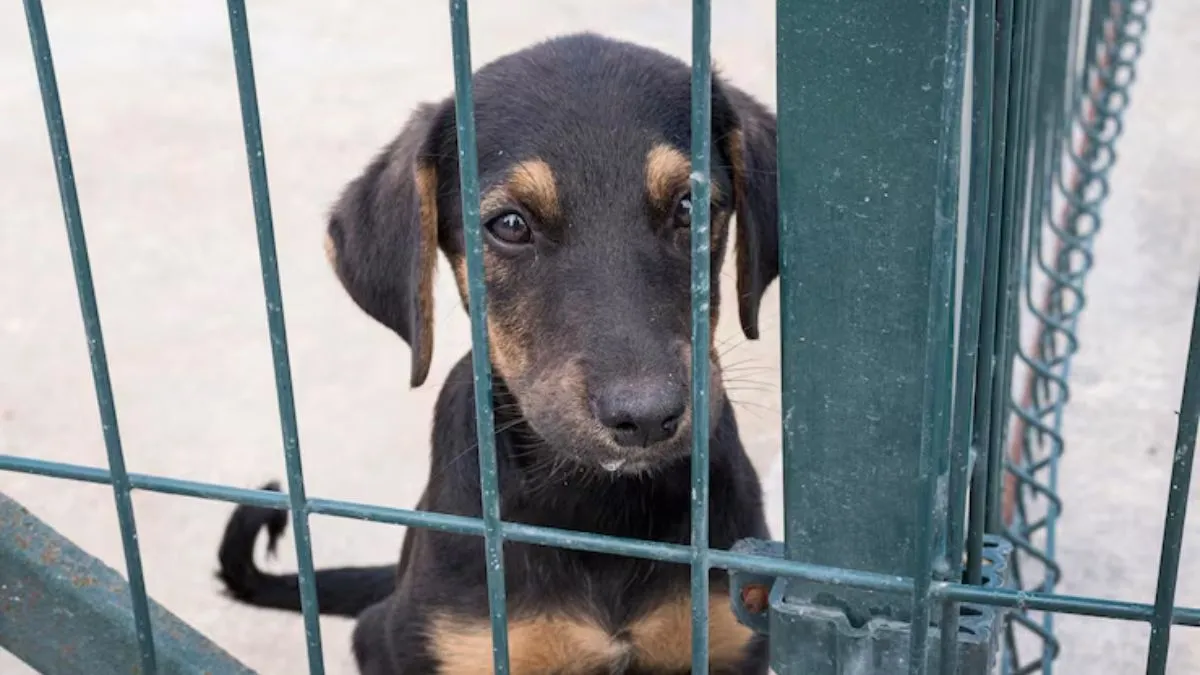Animal cruelty laws: As the Supreme Court directs the Delhi government to relocate all stray dogs from residential areas within eight weeks amid rising dog bite incidents and rabies-linked deaths, attention is turning to how other nations manage their stray animal populations. Across the world, countries have adopted different approaches from sterilisation to controversial measures like mass culling, euthanasia, and even gas chamber executions. While some nations, such as Bhutan and the Netherlands, have successfully achieved near-zero stray dog populations through long-term policy and enforcement, others rely on laws that have sparked global outrage, including Turkey’s so-called “Massacre Law” and Japan’s use of gas chambers.
According to the Court’s order, authorities must begin immediate collection and sterilisation of stray dogs, ensuring none are released back into public spaces. New shelters will be required to have adequate staff, CCTV surveillance, and secure facilities to prevent escapes. The Delhi government has pledged to implement the order promptly, as children and the elderly remain the most vulnerable to stray dog attacks. The directive marks a significant shift from the existing Animal Birth Control (ABC) Rules 2023, which mandate sterilisation and return of strays to their original locations.
Regulations For Stray Dogs In Foreign Countries
Around the world, nations have employed a variety of strategies, from sterilization programs to contentious culling practices to control stray dog populations.
The Controversial ‘Massacre Law’ In Turkey
In July 2024, Turkey introduced legislation requiring municipalities to remove nearly 4 million stray dogs from urban streets. The law mandates capturing, vaccinating, sterilising, and placing dogs for adoption. However, it also authorises euthanasia for animals that are sick, aggressive, or pose a health risk.
Humane TNVR Programme In Morocco
Morocco has a developed Trap-Neuter-Vaccinate-Return (TNVR) programme. Stray dogs are trapped, spayed or neutered, rabies-vaccinated, ear-tagged, and released back to where they came from. Ill or aggressive dogs are humanely euthanised. The government has spent about USD 23 million on the scheme over five years.
Euthanasia And Strict Penalties Policy In UK
In the UK, stray animals are retained for a maximum period of eight days prior to being placed for adoption. If not claimed or adopted, most are euthanised, although some organizations have no-kill shelters. Abandoning pets is illegal and punishable by up to three years in prison and fines exceeding ₹53 lakh.
Gas Chamber Euthanasia In Japan
Japan has strict animal welfare legislation, but allows euthanasia for ill or menacing animals. In certain parts, such as Tokyo, euthanasia is performed with the use of gas chambers condemned by campaigners for inducing prolonged agony, in some cases taking as long as 15 minutes.
Strong Animal Protection Laws In Switzerland
Abandoning pets is a criminal act punishable by up to three years in prison in Switzerland. Pet owners are required to register pets with local authorities, and some cantons insist on certification courses prior to a pet owner obtaining a dog.
Neutering Laws In South Korea
South Korea operates a country-wide Trap-Neuter-Return (TNR) for stray cats and also levies fines on abandoning pets under its Domestic Animal Protection Law.
ALSO READ: After SC Order On Dogs, MCD Stares At Challenges In Relocating Strays To Shelters; Here’s Why
Laws In Bhutan And Netherlands
Bhutan sterilised 100 per cent of its stray dog population by 2023 under the Nationwide Accelerated Dog Population Management and Rabies Control Programme. More than 61,000 dogs were sterilised under the campaign, 95 per cent of them vaccinated against rabies, and microchipped pet dogs, done on a budget of ₹29 crore.
ALSO READ: Delhi Police Detains Activists, Dog Rescuers Protesting Supreme Court’s Stray Dog Relocation Order At India Gate, PETA Criticises Directive
Netherlands, which was once infested with stray dogs, became the first European nation to have no stray population. The transformation was brought about by hefty taxes on store-bought dogs, a Collect-Neuter-Vaccinate-Return (CNVR) scheme, and a specialized pet-police force that implements stringent anti-abuse regulations. Offenders risk prison terms of up to three years and 16,000 Euros fines.
The Supreme Court’s relocation directive contrasts sharply with India’s ABC Rules 2023, which require dogs to be sterilised and immunised before being released back to their original location. The present rules do not allow for permanent relocation of strays, raising questions on how the latest order will align with existing law.
